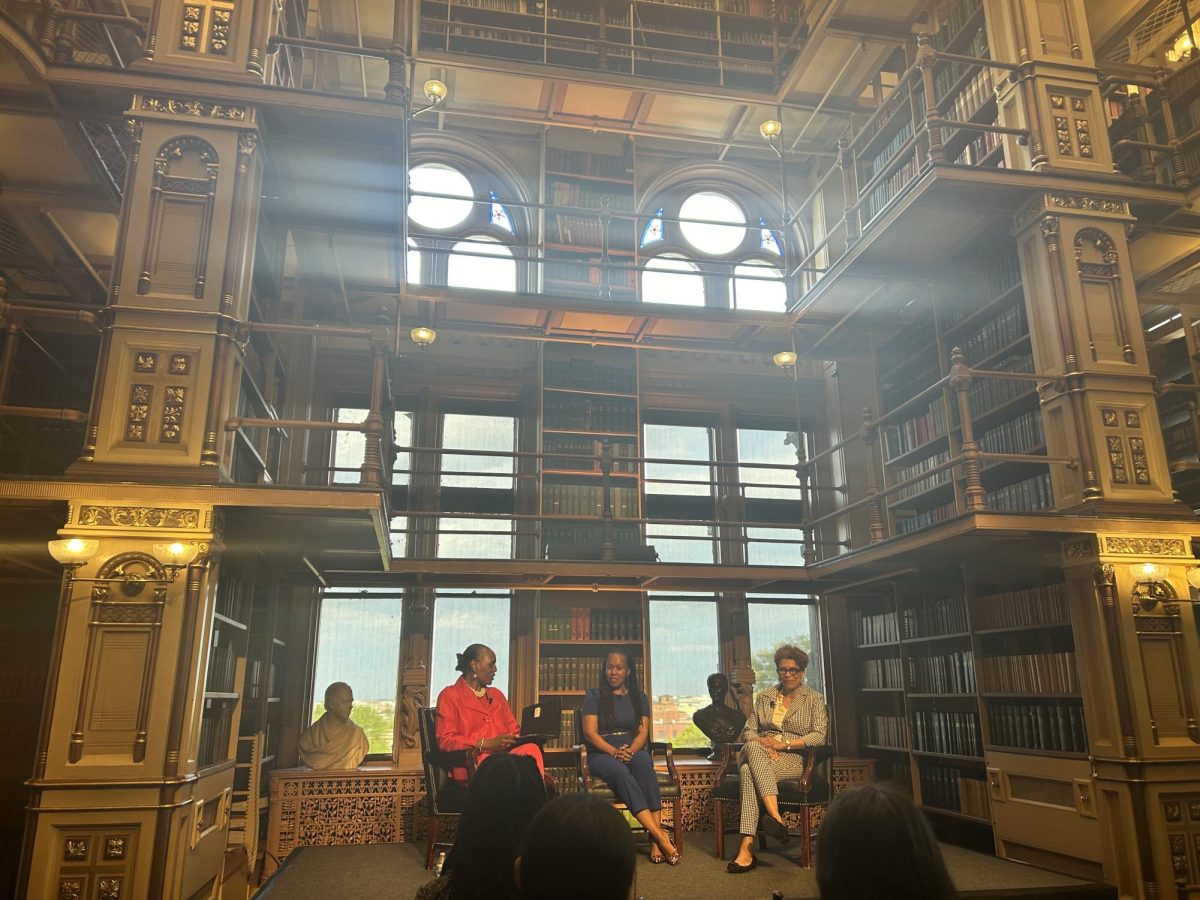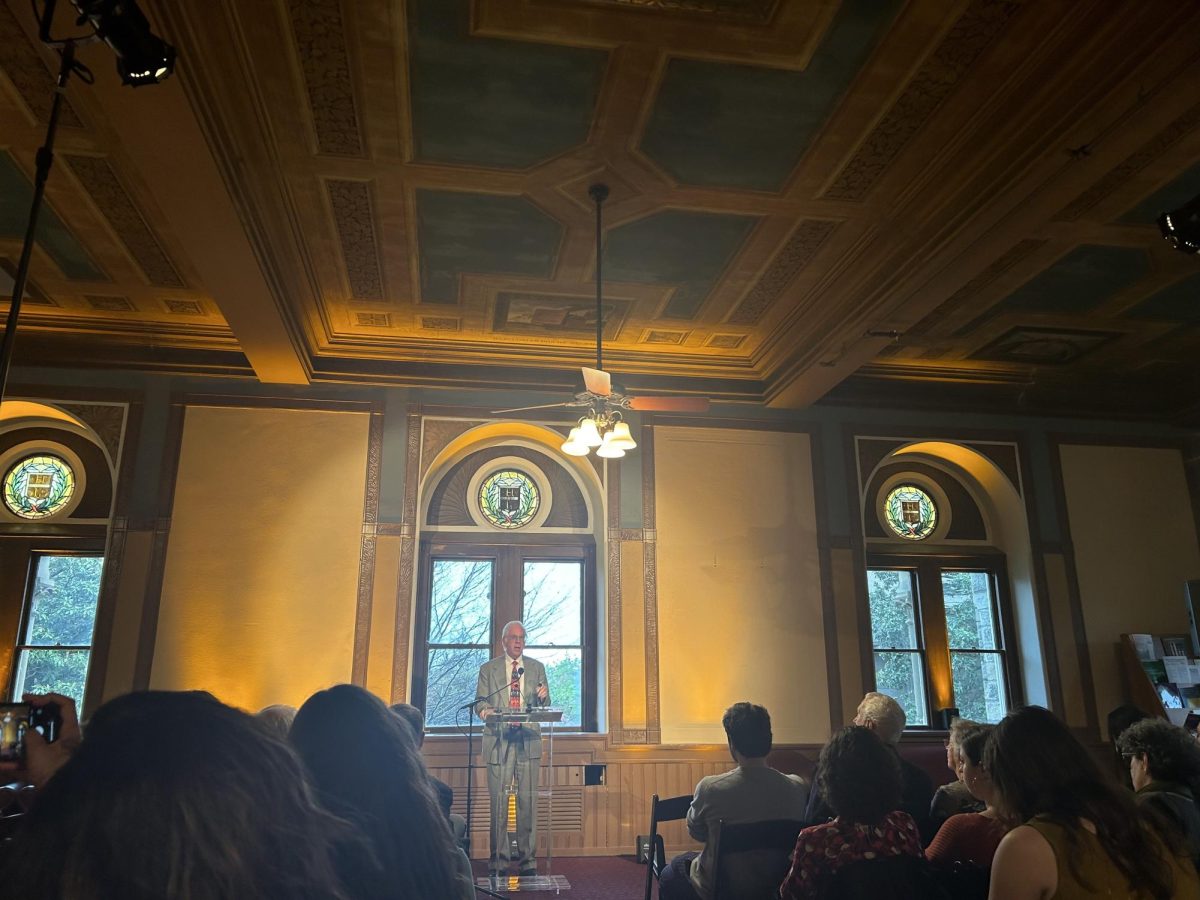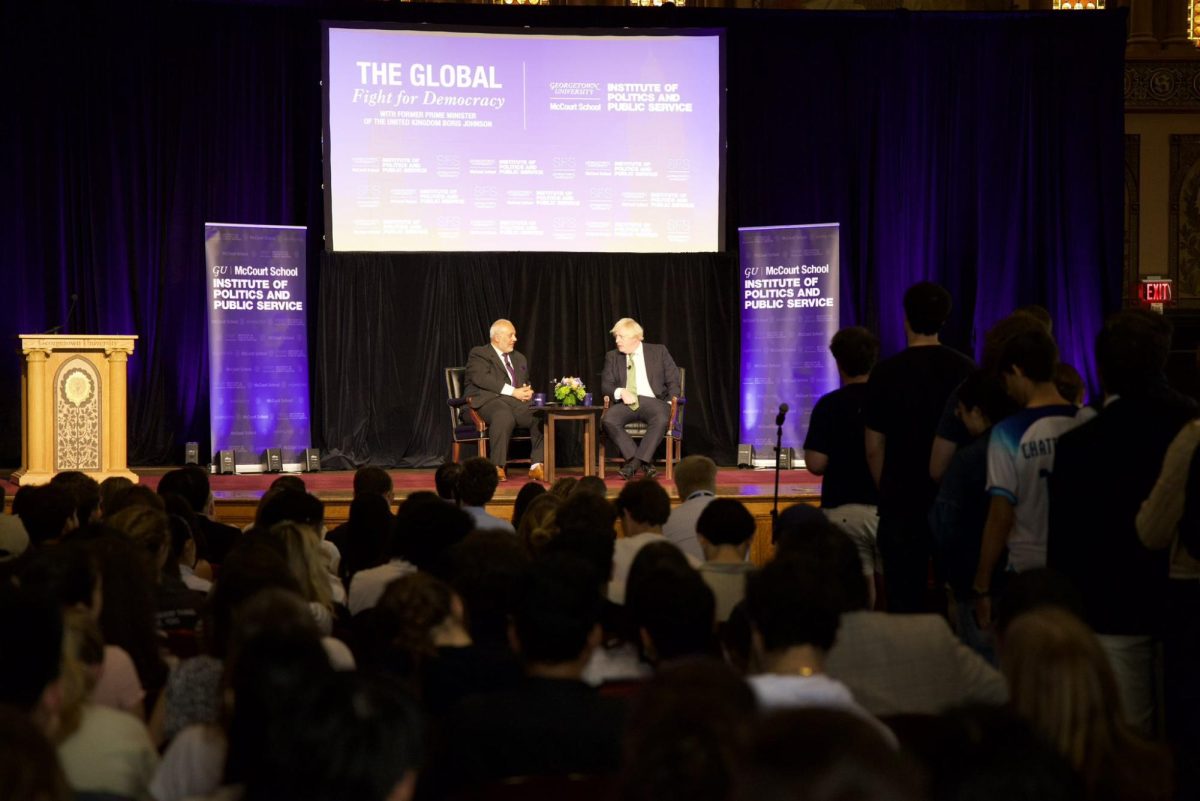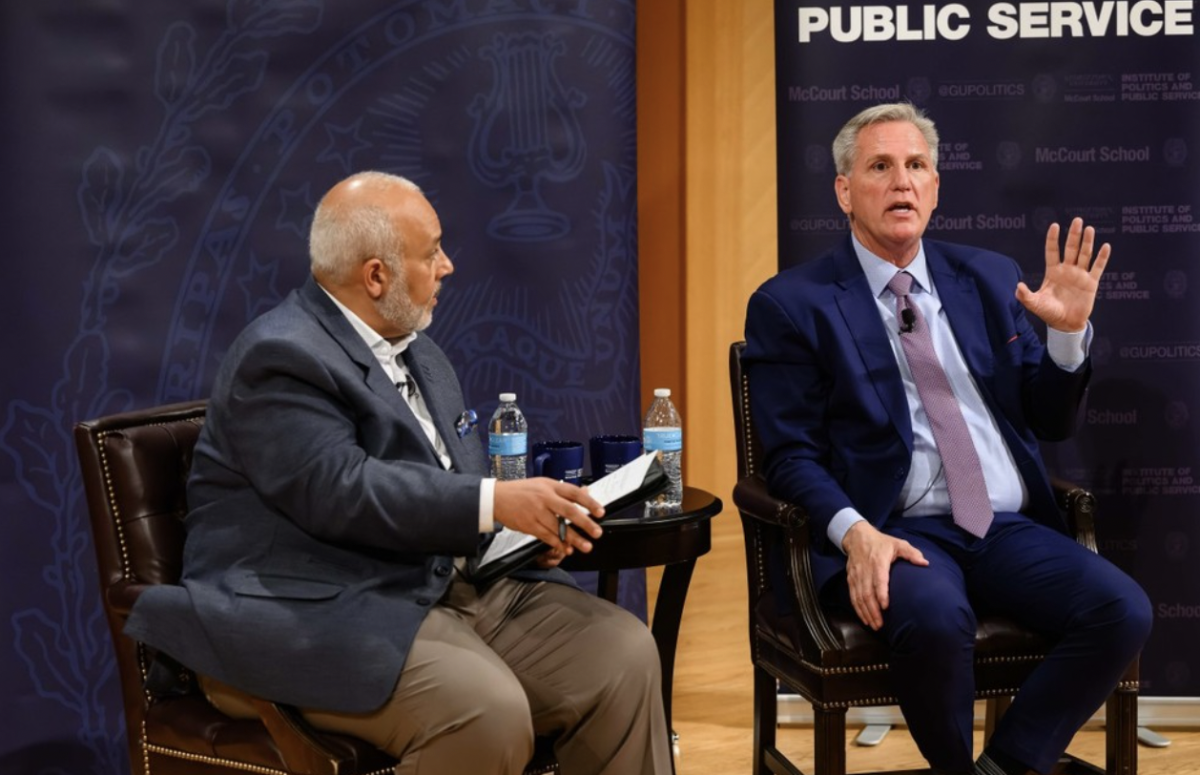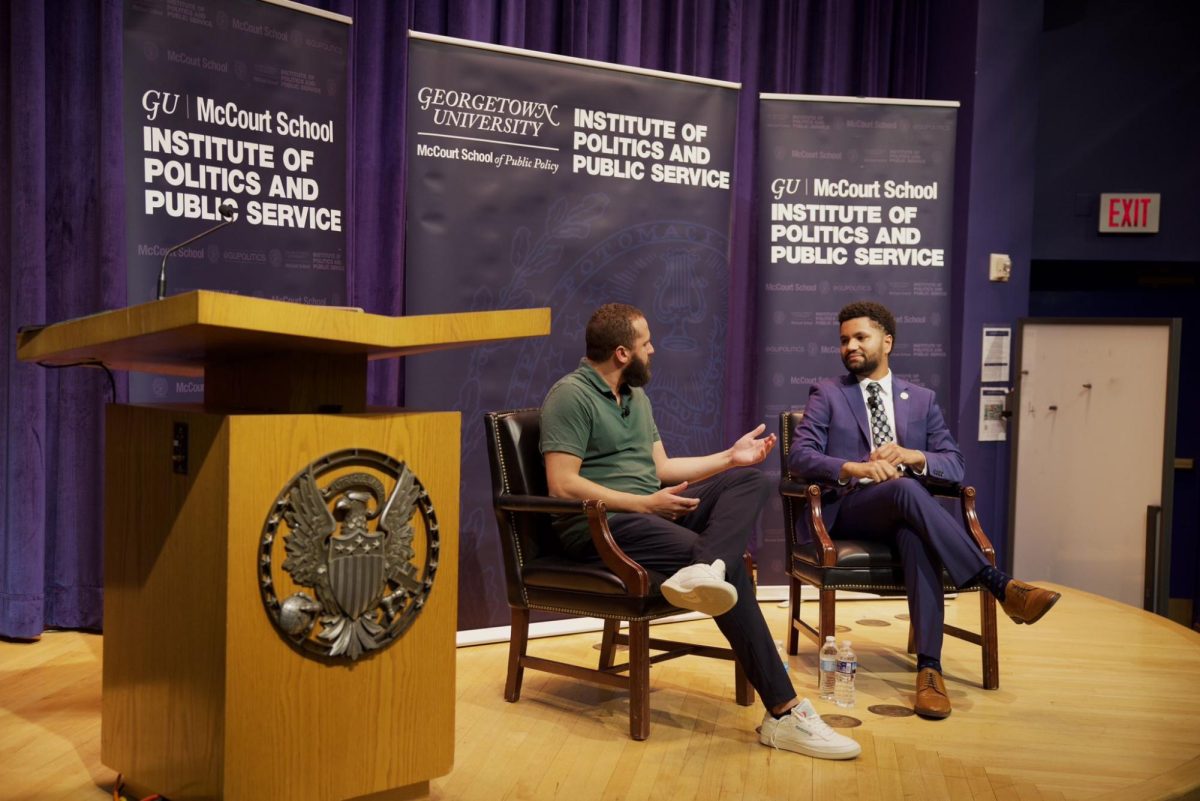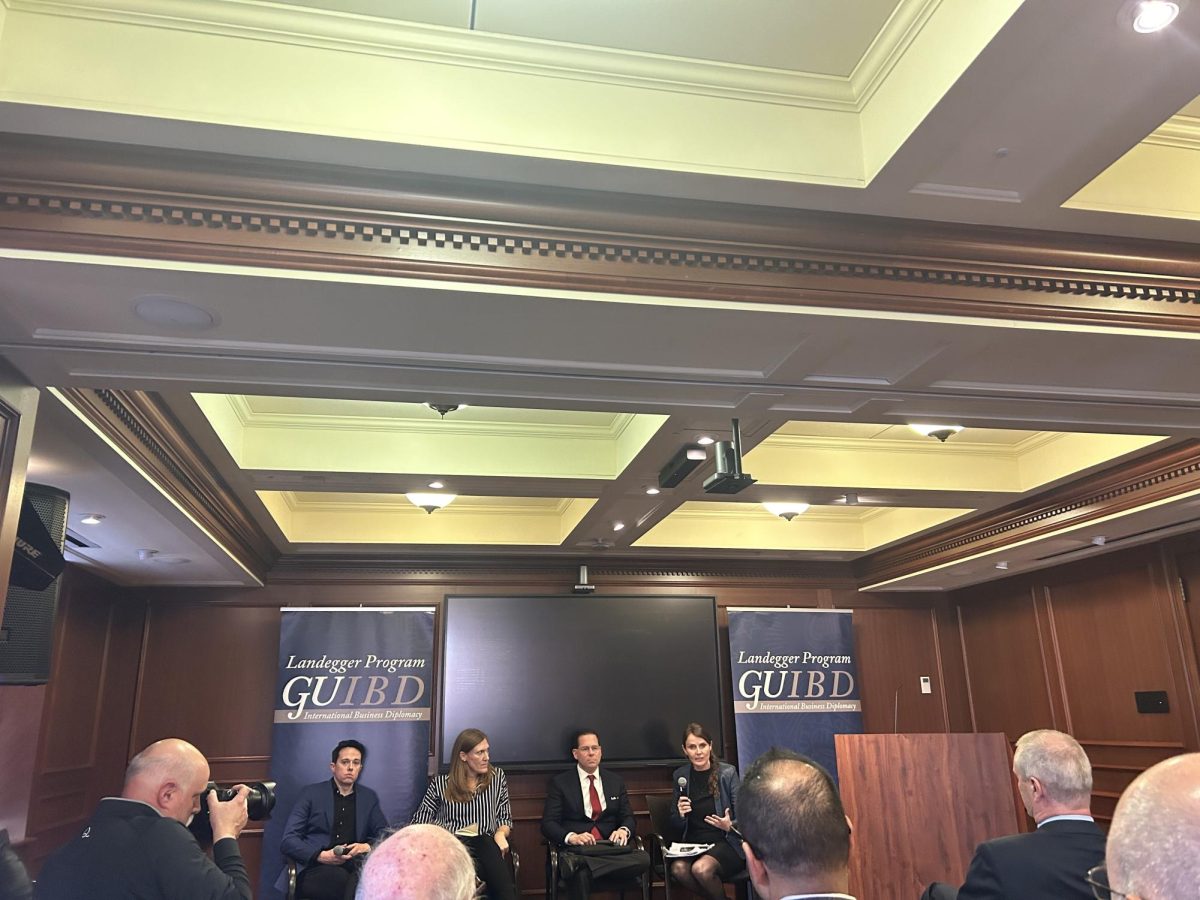Technology, policy and law experts provided critical insights regarding the implications of artificial intelligence (AI) in everyday life in a March 12 conversation hosted by Georgetown University’s McCourt School of Public Policy.
The conversation was part of the “AI & Me” discussion series, which is coordinated by the McCourt School’s Massive Data Institute (MDI) and Tech and Policy Program and invites experts to discuss the future implications of AI on daily life through the lenses of privacy, equity and creativity. This iteration of the series focused on privacy and data, with professors, a lawyer and a policymaker discussing generative AI governance. MDI professor Amy O’Hara moderated the conversation.
Lisa Singh, director of the MDI, said there are positives and negatives to the societal transformation AI is spearheading.
“We need to pause at this moment as a community and think about what AI means to each of us,” Singh said.
Eric Null, who studies privacy and data at the Center for Democracy & Technology, a non-partisan non-profit that focuses on technology legislation, said AI is much more mundane than it can seem in media portrayals.
“When we talk about AI, I feel like a lot of people jump immediately to killer robots like an iRobot from a horror movie,” Null said at the event. “What we are talking about at this point are these software programs that are designed to intake a bunch of data about someone or something or the environment, and then you train that system to make decisions or recommendations on new prompts into that system.”
Jane Horvath, a lawyer who previously served as Apple’s chief privacy officer, Google’s global privacy counsel and the Department of Justice’s (DOJ) first chief privacy counsel, discussed the tensions between AI and existing privacy laws.
Horvath said minimizing the purposes companies collect user data for is a prominent struggle.
“When you are looking at training a model, and you have all this personal information that you’d like to collect to train your model, and particularly when you are looking at general purpose AI, how do you narrow down and minimize the data?” Horvath said at the event “That is a tension: purpose limitation.”
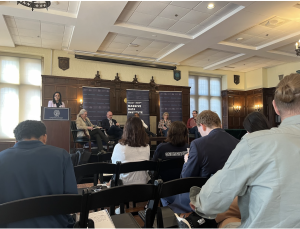
Null said “opt-in” and “opt-out” policies within apps have protected customers’ data and limited nonconsensual data sales.
Ryan Hagemann, IBM’s global lead for AI policy, said there is a rise in advanced technology around the globe, and everyone wants to be at the forefront.
“There is an intense desire to be national leaders in AI,” Hagemann said at the event.
Muthu Venkitasubramaniam, an associate professor of computer science at Georgetown, said cryptography is key to protecting data.
“There are cryptographic enhancing techniques that will help you to minimize the data you share for the computation you need,” Venkitasubramaniam said at the event. “There is a beautiful cryptographic concept called ‘secure multiparty computation’ that allows all of us to share data jointly while keeping the inputs private.”
Null said asking for users’ specific consent maximizes data protection.
“If a company wanted to sell your data to a data broker, they’d have to ask you first, and if you didn’t respond or said no, then they wouldn’t be allowed to do it, and only if you said yes, they would be allowed to do it,” Null said.
However, Horvath said it can be difficult for users to fully consent to companies’ use of their data.
“How many of you all read the cookie consents that appear every time you try to load a page? Very few,” Horvath said. “And sometimes you read them and can’t understand them, and then get frustrated. The laws are there, but understanding how to exercise your rights is difficult.”








